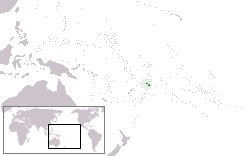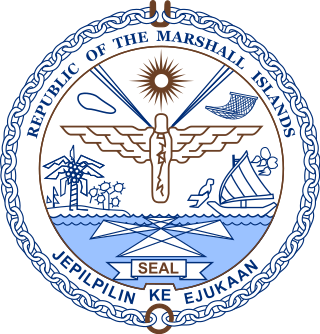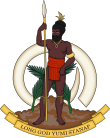Related Research Articles

The Convention on the Elimination of all Forms of Discrimination Against Women (CEDAW) is an international treaty adopted in 1979 by the United Nations General Assembly. Described as an international bill of rights for women, it was instituted on 3 September 1981 and has been ratified by 189 states. Over fifty countries that have ratified the Convention have done so subject to certain declarations, reservations, and objections, including 38 countries who rejected the enforcement article 29, which addresses means of settlement for disputes concerning the interpretation or application of the convention. Australia's declaration noted the limitations on central government power resulting from its federal constitutional system. The United States and Palau have signed, but not ratified the treaty. The Holy See, Iran, Somalia, Sudan, and Tonga are not signatories to CEDAW.

Human rights are largely respected in Switzerland, one of Europe's oldest democracies. Switzerland is often at or near the top in international rankings of civil liberties and political rights observance. Switzerland places human rights at the core of the nation's value system, as represented in its Federal Constitution. As described in its FDFA's Foreign Policy Strategy 2016-2019, the promotion of peace, mutual respect, equality and non-discrimination are central to the country's foreign relations.
Nauru is a small island country in the South Pacific. With a population of 13,649 it is the world's least populous independent republic. Nauru's government operates under its constitution, part two of which contains 'protection of fundamental rights and freedoms.' The Human Rights Council (UNHRC) carried out Nauru's Universal Periodic Review (UPR) in January 2011. The review was generally favourable with only a few areas of concern.
The Optional Protocol to the Convention on the Elimination of All Forms of Discrimination against Women (OP-CEDAW) is an international treaty which establishes complaint and inquiry mechanisms for the Convention on the Elimination of All Forms of Discrimination Against Women (CEDAW). Parties to the Protocol allow the Committee on the Elimination of Discrimination against Women to hear complaints from individuals or inquire into "grave or systematic violations" of the convention. The Protocol has led to a number of decisions against member states on issues such as domestic violence, parental leave and forced sterilization, as well as an investigation into the systematic killing of women in the Mexican city of Ciudad Juárez, Chihuahua.
The Declaration on the Elimination of Violence Against Women was adopted without a vote by the United Nations General Assembly in the 48/104 resolution of 20 December 1993. Contained within it is the recognition of "the urgent need for the universal application to women of the rights and principles with regard to equality, security, liberty, integrity and dignity of all human beings". It recalls and embodies the same rights and principles as those enshrined in such instruments as the Universal Declaration of Human Rights, and Articles 1 and 2 provide the most widely used definition of violence against women.
The Universal Periodic Review (UPR) is a mechanism of the United Nations (UN) Human Rights Council (HRC) that emerged from the 2005 UN reform process. Commonly referred to as the UPR, it was established by General Assembly resolution 60/251 of 3 April 2006, the UPR periodically examines the human rights performance of all 193 UN Member States. It is intended to complement, not duplicate, the work of other human rights mechanisms, including the UN human rights treaty bodies. This is the first international human rights mechanism to address all countries and all human rights. The Working Group on the UPR, which is composed of the HRC's 47 Member States and chaired by the HRC President, conducts country reviews.

Lesbian, gay, bisexual and transgender (LGBT) people in Samoa face legal challenges not faced by non-LGBT people. Same-sex sexual acts are illegal, punishable by up to seven years imprisonment, but the law is not enforced.
Tonga is a constitutional monarchy with a population of approximately 130,000. Politics and the economy are dominated by the king, the nobility, and a few prominent commoners. Economic, social and cultural rights are generally well respected. There are, however, a number of issues concerning protection of civil and political rights, particularly freedom of expression, and rights to political participation. Violence against women is a serious issue.
The Universal Periodic Review (UPR) is a state monitoring mechanism of the United Nations Human Rights Council (HRC). It was established by General Assembly resolution 60/251 in 2006 to periodically review the protection and promotion of human rights in each of the 193 United Nations (UN) Member States. New Zealand has been reviewed twice via the UPR in 2009 and 2014.
Samoa, officially the Independent State of Samoa, has a population of approximately 188,000 people. Samoa gained independence from New Zealand in 1962 and has a Westminster model of Parliamentary democracy which incorporates aspects of traditional practices. The Human Rights Protection Party (HRPP) is currently in government and has been so for over 20 years. In 2016, Samoa ratified the Convention on the Rights of Persons with Disabilities CRPD and the three optional protocols to the CRC
The Cook Islands are 15 small islands scattered over 2 million km squared of the South Pacific. According to the latest census, the nation has a total population of approximately 18,000 people. Spread in population between the mainland capital, Rarotonga, and the Outer Islands mean inequality in terms of delivery of public services. Internal migration between Rarotonga and the Outer Islands is relatively high due to lack of schooling and employment opportunities, and increased living standards and availability of medical and educational services in Rarotonga.
Tuvalu is a small island nation in the South Pacific, located North of Fiji and North West of Samoa. The population at the 2012 census was 10,837. Tuvalu has a written constitution which includes a statement of rights influenced by the United Nations Universal Declaration of Human Rights and the European Convention on Human Rights. While most human rights in Tuvalu are respected, areas of concern include women’s rights and freedom of belief, as well as diminishing access to human rights in the face of global warming. The latter has played a major role in the implementation of human rights actions in Tuvalu given its geographical vulnerability and scarce resources.
The Republic of Uruguay is located in South America, between Argentina, Brazil and the South Atlantic Ocean, with a population of 3,332,972. Uruguay gained independence and sovereignty from Spain in 1828 and has full control over its internal and external affairs. From 1973 to 1985 Uruguay was governed by a civil-military dictatorship which committed numerous human rights abuses.
Violence against women in Fiji is recognised to be "pervasive, widespread and a serious national issue" in the Pacific Island region. Fiji's rates of violence against women are "among the very highest in the world". The Fiji Women's Crisis Centre reports that 64% of women who have been in intimate relationships have experienced physical or sexual violence from their partner, including 61% who were physically attacked and 34% who were sexually abused.
Violence against women in New Zealand is described as the kinds of violence faced by women disproportionately to men due to factors of ongoing gender inequality in society. The New Zealand government and the New Zealand justice system view efforts to prevent and deal with violence against women as a priority of New Zealand legislation and the criminal justice system. There are current domestic laws relating to the prevention and punishment of violence against women, however, despite these efforts, women in New Zealand still face high levels of violence. New Zealand was ranked as worst for Domestic Violence compared to other OECD countries with 1 in 3 women estimated to have been a victim of violence in their lifetime and as of 2020, with the onset of the COVID-19 pandemic, NZ police were reported to be responding to a domestic violence call every 4 minutes.
The Federated States of Micronesia is a United States Associated State consisting of 4 states across the Western Pacific Ocean. The estimated population in 2015 was 105,216. Formerly the FSM was a part of the Trust Territory of the Pacific Islands (TTPI) but in 1979 formed its own constitutional government. FSM has a written constitution which took effect in 1979 and has been amended only once in 1990. By virtue of membership in the United Nations, the FSM abides by the UN Declaration of Human Rights (UDHR). Key human rights concerns in FSM include judicial delays, government corruption, discrimination against women, domestic violence and child neglect.

The Marshall Islands is a country in the Pacific spread over 29 coral atolls, with 1,156 islands and islets. It has an estimated population of 68,480 and is one of the sixteen member states of the Pacific Islands Forum. Since 1979, the Marshall Islands has been self-governing.
Forced marriage is the marriage of one person to another person without the consent of one or both of the parties. It is to be distinguished from an arranged marriage, where the parties do not select their partners but there is free choice to accept or decline the marriage. Forced marriage is widely recognised as a human rights abuse, with some commentators considering it a form of slavery.
Marital rape generally refers to non-consensual sexual intercourse between married spouses. In Singapore, there used to be a partial immunity for marital rape first introduced during British colonial rule because it was deemed not a criminal offence except when the wife is below 13 years of age or when any of the specific circumstances provided under section 375(4) of the Singapore Penal Code are satisfied. Since 1 January 2020, the law was repealed and its immunity lifted under the Criminal Law Reform Act 2019, criminalising marital rape.
References
- ↑ "Vanuatu Population (2022) - Worldometer". www.worldometers.info. Retrieved 2022-12-31.
- ↑ "Constitution of Vanuatu". Archived from the original on 2012-03-02. Retrieved 2011-09-11.
- ↑ Member States of the United Nations
- ↑ Universal Periodic Review: Report of the Working Group on the Universal Periodic Review: Vanuatu A/HRC/12/14 (4 June 2009), para 7, 38
- 1 2 3 4 Universal Periodic Review: Stakeholders Submissions: Vanuatu A/HRC/WG.6/5/VUT/3 (23 February 2009) para 15,16
- 1 2 3 4 5 6 7 8 2010 Human Rights Reports: Vanuatu (US State Department)
- ↑ Universal Periodic Review: National Report: Vanuatu A/HRC/WG.6/5/VUT/1 (23 February 2009) para 18,33-41,50
- ↑ Universal Periodic Review: Views on conclusions and/or recommendations, voluntary commitments and replies presented by the state under review: Vanuatu A/HRC/12/14/Add.1 (24 September 2009) no. 26, 27-30
- ↑ Family Protection Act (VUT) 2008, s 1
- ↑ Jolly, Margaret "Women Ikat Raet Long Human Raet O No? Women's Rights, Human Rights and Domestic Violence in Vanuatu" Feminist Review no.52 The World Upside Down: Feminisms in the Antipodes (Spring, 1996) pp. 169-190 at 185
- 1 2 3 Universal Periodic Review: National Report: Vanuatu A/HRC/WG.6/5/VUT/1 (23 February 2009) para 18, 33-41, 50
- ↑ Universal Periodic Review: Views on conclusions and/or recommendations, voluntary commitments and replies presented by the state under review: Vanuatu A/HRC/12/14/Add.1 (24 September 2009) no. 27-30
- ↑ Universal Periodic Review: Views on conclusions and/or recommendations, voluntary commitments and replies presented by the state under review: Vanuatu A/HRC/12/14/Add.1 (24 September 2009) no.26,27-30
- 1 2 3 4 5 6 7 8 9 Universal Periodic Review: National Report: Vanuatu A/HRC/WG.6/5/VUT/1 (23 February 2009) para 18, 33-41
- ↑ Leadership Code Act (VUT) 1998
- ↑ Universal Periodic Review: Views on conclusions and/or recommendations, voluntary commitments and replies presented by the State under review: Vanuatu A/HRC/12/14/Add. 1 (24 September 2009) no. 17
- ↑ 2010 Human Rights Reports: Vanuatu (US State Department)
- ↑ "2010 Human Rights Report: Vanuatu". www.state.gov. Archived from the original on 13 April 2011. Retrieved 15 January 2022.
- ↑ Universal Periodic Review: Report of the Working Group on the Universal Periodic Review: Vanuatu A/HRC/12/14 (4 June 2009) para 38
- ↑ Universal Periodic Review: Views on conclusions and/or recommendations, voluntary commitments and replies presented by the State under review A/HRC/12/14/Add.1 (24 September 2009) no. 20
